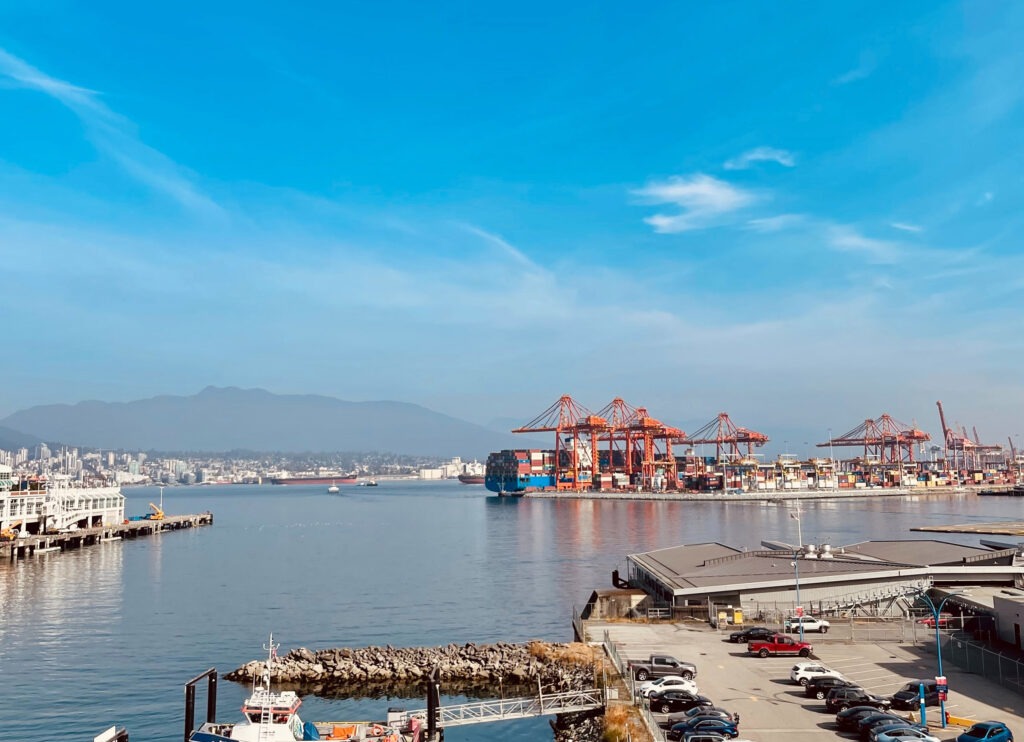BC Port Strike
- Thread starter Ron in Regina
- Start date
You are using an out of date browser. It may not display this or other websites correctly.
You should upgrade or use an alternative browser.
You should upgrade or use an alternative browser.
Not any longer. 30 years ago yeah but not these days.Especially since HA runs the BC ports.
Time is continuing to tick by in the B.C. port strike and shipments have not left Saskatchewan in more than three weeks.
Chris Lane, the president and CEO of Economic Development Regina, said this has become a much larger problem for producers, and he wants to see the quickest solution reached.
“You can’t overstate the impacts that this will have on the province. Small businesses could be out hundreds of thousands of dollars, but large portions of the export economy stand to lose much more than that, or at least put it in jeopardy,” said Lane.
Lane said Saskatchewan’s reputation of reliability when delivering products may be affected by the port strike.
“As a commodity-based economy, we rely on reliable shipping and access to that shipping at Canada’s ports. As an agricultural producer, we need that port access for not only the commodities we ship out, but for the commodities we ship in to make the economy go,” he said.
Large agricultural producers are struggling to ship to customers and small businesses are struggling to make sales because they don’t have reliable imports, according to Lane.
“Whether you are a large mover of things like potash for example or you’re a small business looking to have access to product and materials, port access and reliable port access for customers is exceptionally important,” said Lane.
While sellers might get creative with new ways to ship, Lane said all producers will eventually need port access to deliver large volumes of resources.
Saskatoon-based Nutrien Ltd. previously announced it was curtailing production at its Cory potash mine southwest of Saskatoon, and warned the strike may have an impact on the company’s other Saskatchewan mines if it’s not resolved quickly.
About 7,400 port workers at more than 30 ports in B.C. have been asking for increased pay and protection from automation and contracting out since Canada Day.

 www.cjme.com
www.cjme.com
Chris Lane, the president and CEO of Economic Development Regina, said this has become a much larger problem for producers, and he wants to see the quickest solution reached.
“You can’t overstate the impacts that this will have on the province. Small businesses could be out hundreds of thousands of dollars, but large portions of the export economy stand to lose much more than that, or at least put it in jeopardy,” said Lane.
Lane said Saskatchewan’s reputation of reliability when delivering products may be affected by the port strike.
“As a commodity-based economy, we rely on reliable shipping and access to that shipping at Canada’s ports. As an agricultural producer, we need that port access for not only the commodities we ship out, but for the commodities we ship in to make the economy go,” he said.
Large agricultural producers are struggling to ship to customers and small businesses are struggling to make sales because they don’t have reliable imports, according to Lane.
“Whether you are a large mover of things like potash for example or you’re a small business looking to have access to product and materials, port access and reliable port access for customers is exceptionally important,” said Lane.
While sellers might get creative with new ways to ship, Lane said all producers will eventually need port access to deliver large volumes of resources.
Saskatoon-based Nutrien Ltd. previously announced it was curtailing production at its Cory potash mine southwest of Saskatoon, and warned the strike may have an impact on the company’s other Saskatchewan mines if it’s not resolved quickly.
About 7,400 port workers at more than 30 ports in B.C. have been asking for increased pay and protection from automation and contracting out since Canada Day.

Port strike hurting large and small producers: Economic Development Regina CEO
Time is continuing to tick by in the B.C. port strike and shipments have not left Saskatchewan in more than th...
 www.cjme.com
www.cjme.com
Harvest starts in a week. Terminals need emptying and the Southern Hemisphere needs fertilizers as spring approaches.
Union members at B.C. ports have rejected a mediated tentative deal after their leadership agreed last week to accept the pact.
Eligible voters of the International Longshore & Warehouse Union Canada (ILWU) turned down the four-year agreement drafted by a federal mediator, who recommended the deal after talks stalled at the bargaining table.
“We call on our direct employers to come to the table and negotiate something that works for our members and the industry,” ILWU president Rob Ashton said in a statement late Friday night in Vancouver.
About 7,400 members of the ILWU halted their 13-day strike on July 13, and then held a 24-hour walkout last week. Eligible ILWU voters at five longshore locals did not include casual workers, who make up a large portion of the work force.
“The ILWU Canada voting membership have rejected the four-year tentative agreement that was proposed by the senior federal mediator and recommended for ratification by the ILWU bargaining committee and their longshore caucus,” the BCMEA said in a statement.
The BCMEA said the median annual income for longshore workers would have jumped to $162,000 a year, starting in the fourth year of the proposed contact, compared with $136,000 in 2022, not including benefits and pension.
But the ILWU has emphasized that the employers made huge profits during the COVID-19 pandemic.
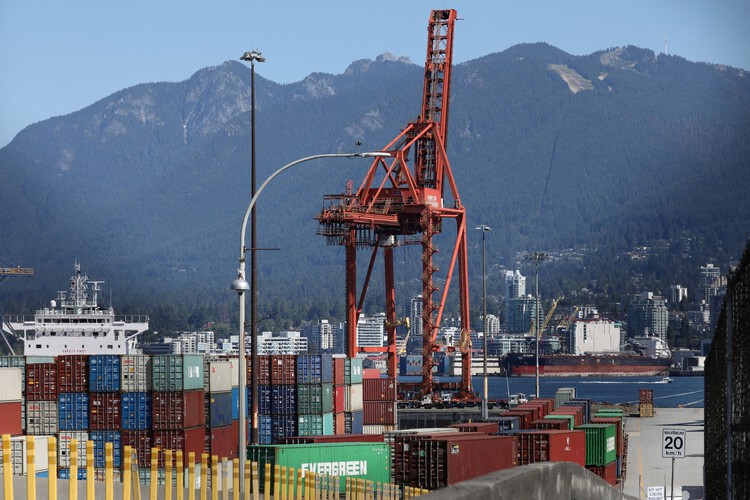
 apple.news
The union has noted three main issues at the bargaining table: Contracting out, cost-of-living wage increases and the impact of automation on job security.
apple.news
The union has noted three main issues at the bargaining table: Contracting out, cost-of-living wage increases and the impact of automation on job security.
Under the mediated proposal, the signing bonus or “inflation adjustment allowance” would be about $3,000 for a full-time worker.
The annual wage increases total 18 per cent nominally, and work out to a compounded wage hike of 19.2 per cent over four years.
There is also a $15,000 increase, or 18.5-per-cent boost, to a retirement fund that currently has a $81,250 lump-sum payout for eligible new retirees, under the mediated deal.
“The deal also included measures to improve training, recruitment and retention of ILWU trades workers now and in the future,” the BCMEA said. “Specifically, the BCMEA agreed to provide benefit coverage for all casual trades workers, a new tool allowance and a commitment to increase apprentices by a minimum of 15 per cent.”
The union sought a two-year agreement, while employers proposed a four-year pact.
The Greater Vancouver Board of Trade estimates that the first work stoppage led to the disruption of $9.9-billion worth of goods between the morning of July 1 and afternoon of July 13, based on a rate of $800-million a day.
Eligible voters of the International Longshore & Warehouse Union Canada (ILWU) turned down the four-year agreement drafted by a federal mediator, who recommended the deal after talks stalled at the bargaining table.
“We call on our direct employers to come to the table and negotiate something that works for our members and the industry,” ILWU president Rob Ashton said in a statement late Friday night in Vancouver.
About 7,400 members of the ILWU halted their 13-day strike on July 13, and then held a 24-hour walkout last week. Eligible ILWU voters at five longshore locals did not include casual workers, who make up a large portion of the work force.
“The ILWU Canada voting membership have rejected the four-year tentative agreement that was proposed by the senior federal mediator and recommended for ratification by the ILWU bargaining committee and their longshore caucus,” the BCMEA said in a statement.
The BCMEA said the median annual income for longshore workers would have jumped to $162,000 a year, starting in the fourth year of the proposed contact, compared with $136,000 in 2022, not including benefits and pension.
But the ILWU has emphasized that the employers made huge profits during the COVID-19 pandemic.
Ottawa seeks relief under labour code after union members at B.C. ports reject tentative deal — The Globe and Mail
Eligible voters of the International Longshore & Warehouse Union Canada turned down the four-year agreement drafted by a federal mediator
Under the mediated proposal, the signing bonus or “inflation adjustment allowance” would be about $3,000 for a full-time worker.
The annual wage increases total 18 per cent nominally, and work out to a compounded wage hike of 19.2 per cent over four years.
There is also a $15,000 increase, or 18.5-per-cent boost, to a retirement fund that currently has a $81,250 lump-sum payout for eligible new retirees, under the mediated deal.
“The deal also included measures to improve training, recruitment and retention of ILWU trades workers now and in the future,” the BCMEA said. “Specifically, the BCMEA agreed to provide benefit coverage for all casual trades workers, a new tool allowance and a commitment to increase apprentices by a minimum of 15 per cent.”
The union sought a two-year agreement, while employers proposed a four-year pact.
The Greater Vancouver Board of Trade estimates that the first work stoppage led to the disruption of $9.9-billion worth of goods between the morning of July 1 and afternoon of July 13, based on a rate of $800-million a day.
Need essential services legislation. The protection from automation is a nonstarter. Otherwise, we would still be unloading ships by hand. As to contracting out, union rules, and a general lack of ambition by highly paid union workers have made getting repairs done in a timely manner impossible. Vancouver port is one of the three worst ports in the world for productivity. Looks like their union wants them to be dead last.
You can’t win the competition for global trade when you come in last – or in this case, second last.Need essential services legislation. The protection from automation is a nonstarter. Otherwise, we would still be unloading ships by hand. As to contracting out, union rules, and a general lack of ambition by highly paid union workers have made getting repairs done in a timely manner impossible. Vancouver port is one of the three worst ports in the world for productivity. Looks like their union wants them to be dead last.
Canada, a country that relies on moving goods in and out of the country for more than two-thirds of its GDP, has just seen its largest port ranked to second-to-last in the recently released World Bank Container Port Performance Index, a comparative measure of port efficiency.
No Canadian port did well. Saint John was the top port in the country – placing 233 out of 348. Vancouver ranked 347th.
This is a real crisis that should set off alarms.
And this is not Canada’s first warning. The country dropped from a Top 10 performance a decade ago to 32nd, right above Azerbaijan, in the World Economic Forum’s 2019 ranking of industry perceptions of export transport infrastructure quality. This latest news of poor port performance, coming just as the government has tied future growth in trade to its Indo-Pacific Strategy, will not help sell Canada to already skeptical foreign customers.
The Port of Vancouver — the main gateway for consumer goods entering Canada from the manufacturing powerhouses in Asia — is among the worst performers, ranking 368th out of 370 ports around the world, according to a new report.
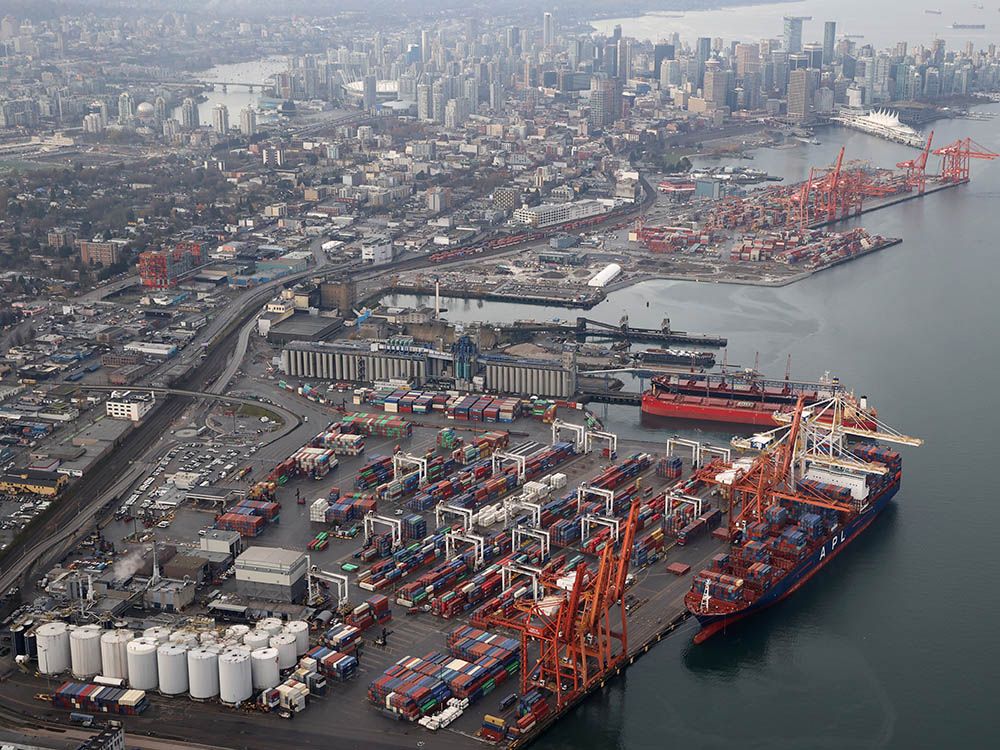
Port of Vancouver ranks among the worst in the world, according to World Bank report
Port efficiency has taken on a new level of urgency amid pandemic supply disruptions
Is part of the strike about trying to fix the above issue?
So we’re competing against Azerbaijan for last place then?The strike is about becoming last in the world.
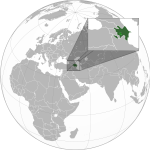
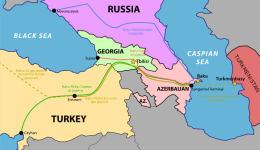

Azerbaijan - Wikipedia
Both sides recommended late Sunday that their members accept the negotiated settlement, just hours after the union criticized employers for refusing to budge on the major sticking point of contracting out of jobs.
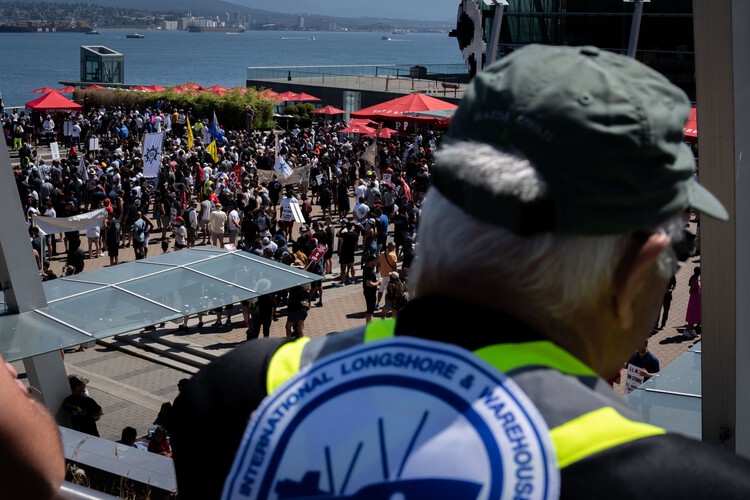
 apple.news
In a joint news release late Sunday, the union and BCMEA confirmed that the labour board assisted in forging the tentative agreement. “The parties are recommending ratification of the collective agreement to the union’s membership and member employers respectively,” the two sides said.
apple.news
In a joint news release late Sunday, the union and BCMEA confirmed that the labour board assisted in forging the tentative agreement. “The parties are recommending ratification of the collective agreement to the union’s membership and member employers respectively,” the two sides said.
The truce marked a significant turnaround from the tone earlier on Sunday, when Mr. Ashton issued a sharply worded statement on how contracting out threatens the job security of ILWU members.
Union secures wording for job protection in tentative deal at B.C. ports — The Globe and Mail
Sources say the proposed pact, which averts a third strike, contains language designed to alleviate concerns about employers outsourcing maintenance jobs to mostly non-union contractors
The truce marked a significant turnaround from the tone earlier on Sunday, when Mr. Ashton issued a sharply worded statement on how contracting out threatens the job security of ILWU members.
